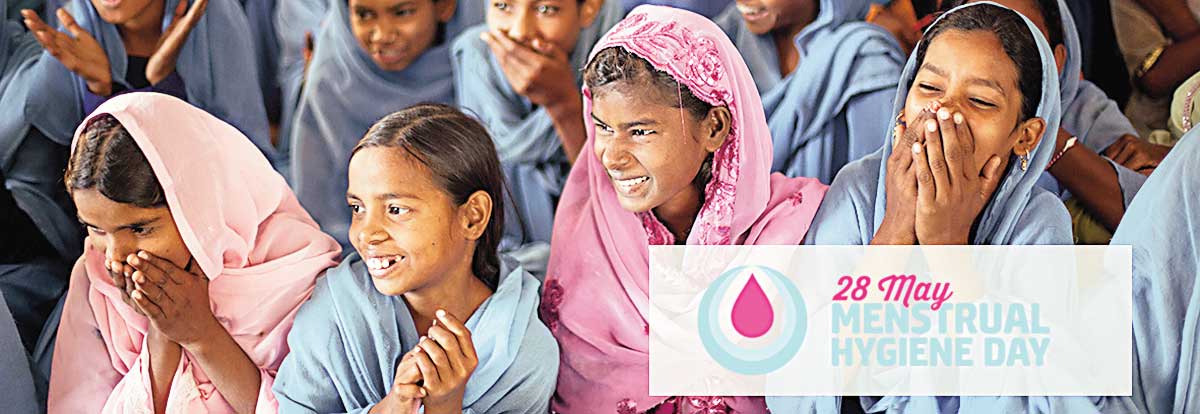Menstrual Hygiene Day is observed globally on May 28th. You! takes a look...
health
Menstrual Hygiene Day is observed globally on May 28th. You! takes a look...
Menstrual Hygiene Day is an awareness platform that works to educate and break taboos about the importance of good menstrual hygiene management for women and adolescent girls.

Menstrual Hygiene Day, also called MHD or MH Day, was first celebrated on 28th of May 2014. This is an annual awareness day that aims to break taboos and raise awareness about the importance of good menstrual hygiene management (MHM) for women and adolescent girls worldwide. It was initiated by the German-based NGO WASH United in 2014. The initiative for Menstrual Hygiene Day has received the support of over 270 global partners who are committed to making good menstrual health and hygiene a priority worldwide. May 28 was chosen for its symbolism since May is the 5th month of the year and most women average 5 days every month and their cycle is approximately 28 days.
Around the world, lack of access to clean and safe sanitation facilities at schools can lead to low attendance and high dropout rates for girls. In many parts of the world especially underdeveloped countries, girls who can’t afford sanitary napkins or change them privately may miss school - five days or more - during their periods. Several studies have shown that menstruation remains an issue poorly addressed in many parts of the world as it is considered a taboo. Furthermore, menstruation management methods such as sanitary napkins are simply too expensive, and are thus unaffordable for many.
Estimates show that one in 10 African girls miss school during their menstrual cycle because of this issue, leading to a higher dropout rate. One school study in Ethiopia reported over 50 per cent of girls missing between one and four days of school per month due to the same reason. Some 66 per cent of girls-only schools in India do not have functioning toilets.
In our part of the world:
Many embarrassing myths prevail in the Pakistani society regarding special days for women. For instance, at some places of Kalash, women are made to stay away from their homes during their monthly menstrual cycles as they are considered impure.
According to a study conducted by Association for Gender Awareness and Human Empowerment (AGAHE), girls in Pakistan do not get adequate and affordable sanitary protection which results in girls not attending school in this condition.
In our part of the world a packet of sanitary pads is sold for almost 150 - 200 rupees, unaffordable for majority, whereas low cost options are not available widely. As a consequence, the majority of adolescent girls have no choice but to use unhealthy, unhygienic, and potentially dangerous methods such as dirty old rags or scraps of cloth. This impacts their lives in several ways such as washing rags and scraps of cloth over and over again is time-consuming and leaves them with unhygienic materials they use over several menstrual cycles. Many girls report feeling the constant need to check whether or not they are leaking, limiting their mobility and creating stress and worries. Also, poor menstrual hygiene can cause fungal infections, Reproductive Tract Infection (RTI) and Urinary Tract Infection (UTI). Unhygienic practices also leave women vulnerable to infertility.
The ultimate goal:
A UNICEF study shows that 10 per cent of the girls in India and 48 per cent of the girls in Iran think menstruation is a disease. Many girls may have heard about menstruation before their first period, but most are not well-informed about its physiological background. Also an important part of Menstrual Hygiene Day is to give information about periods so that girls know what is happening in their body and why. If you are a mother or teacher, explaining menstruation to girls will make her feel comfortable with the changes that are going on in her body and help them understand why it’s important to have access to clean water and sanitation, and a private area where they can change their sanitary cloths or pads (as often as required) and dispose them properly.
The aim of this day is to raise awareness and provide facilities so that every girl and woman anywhere in the world can hygienically manage their menstruation, in privacy, safety, and with dignity.